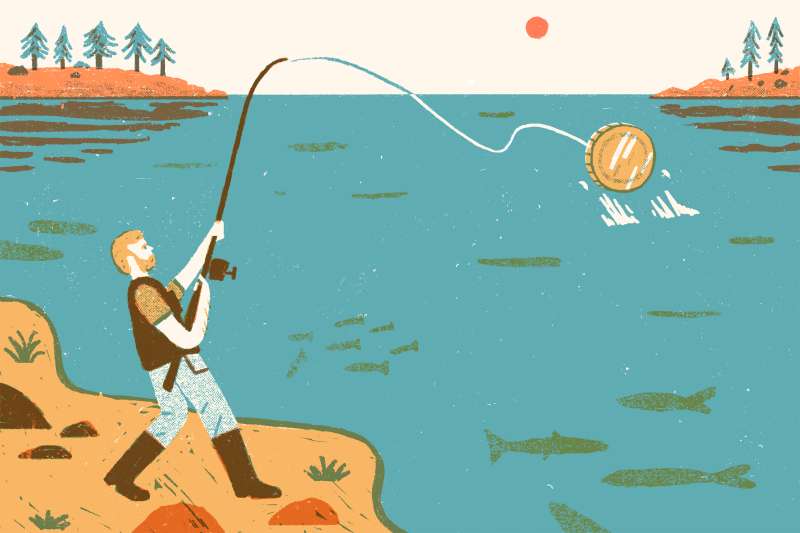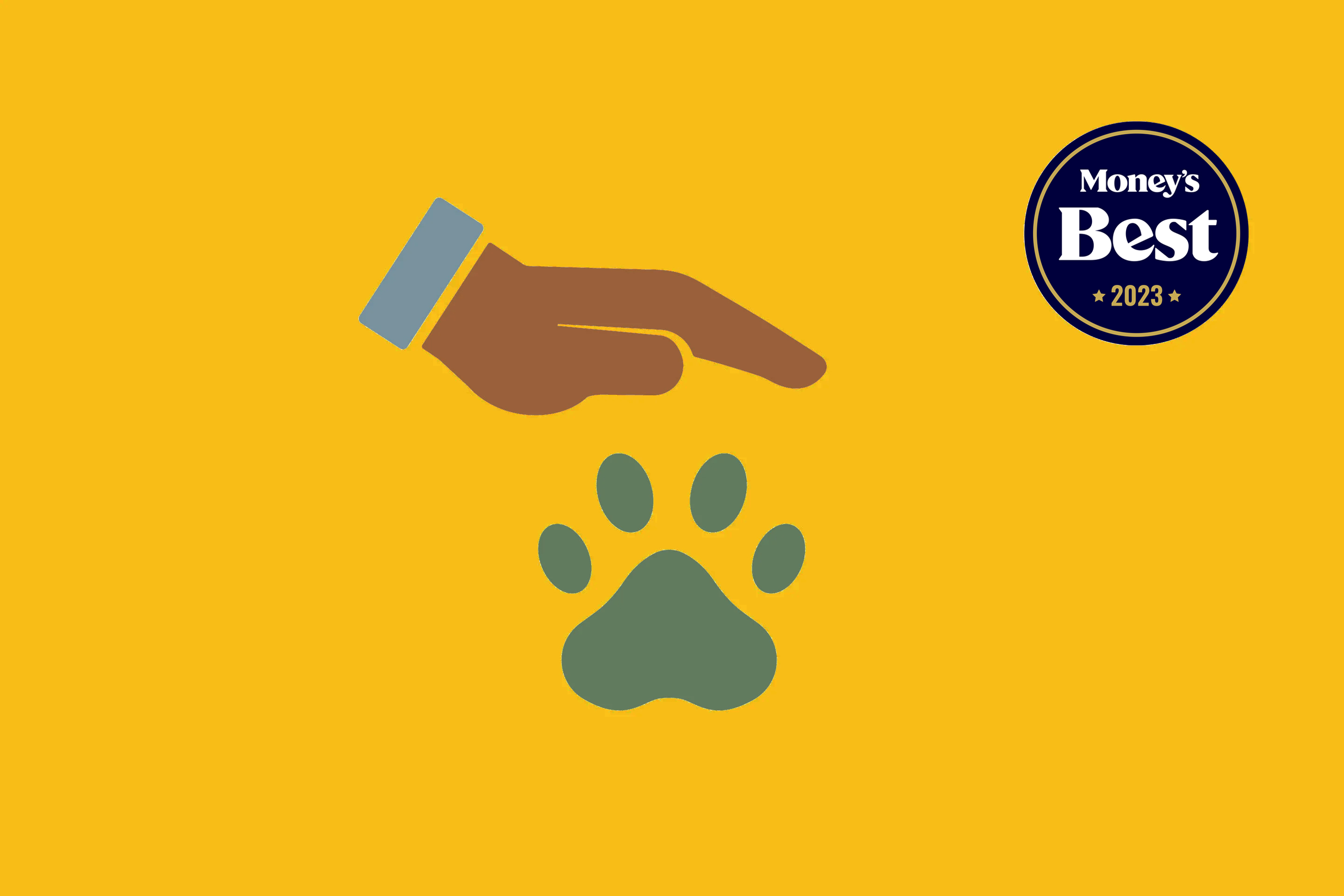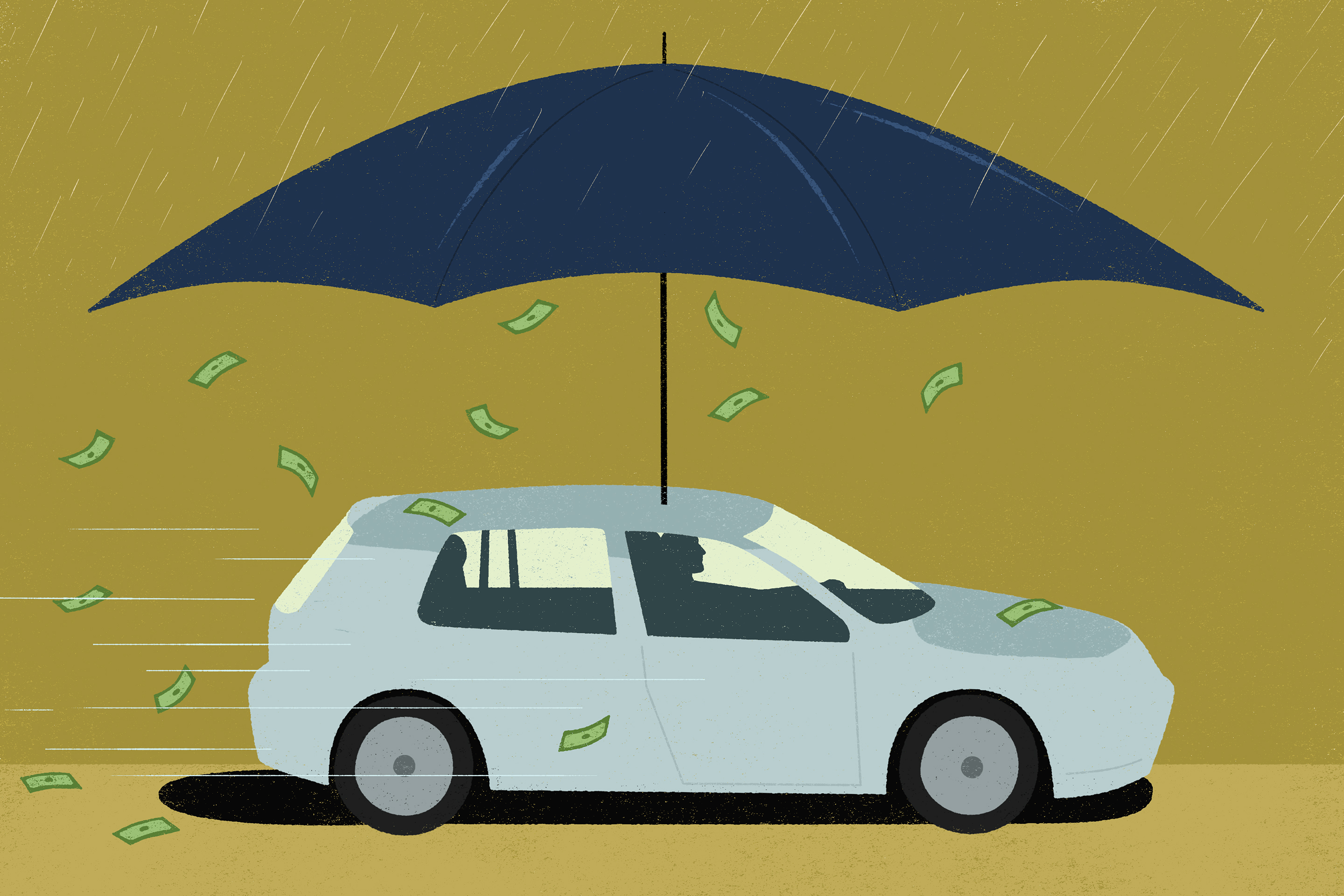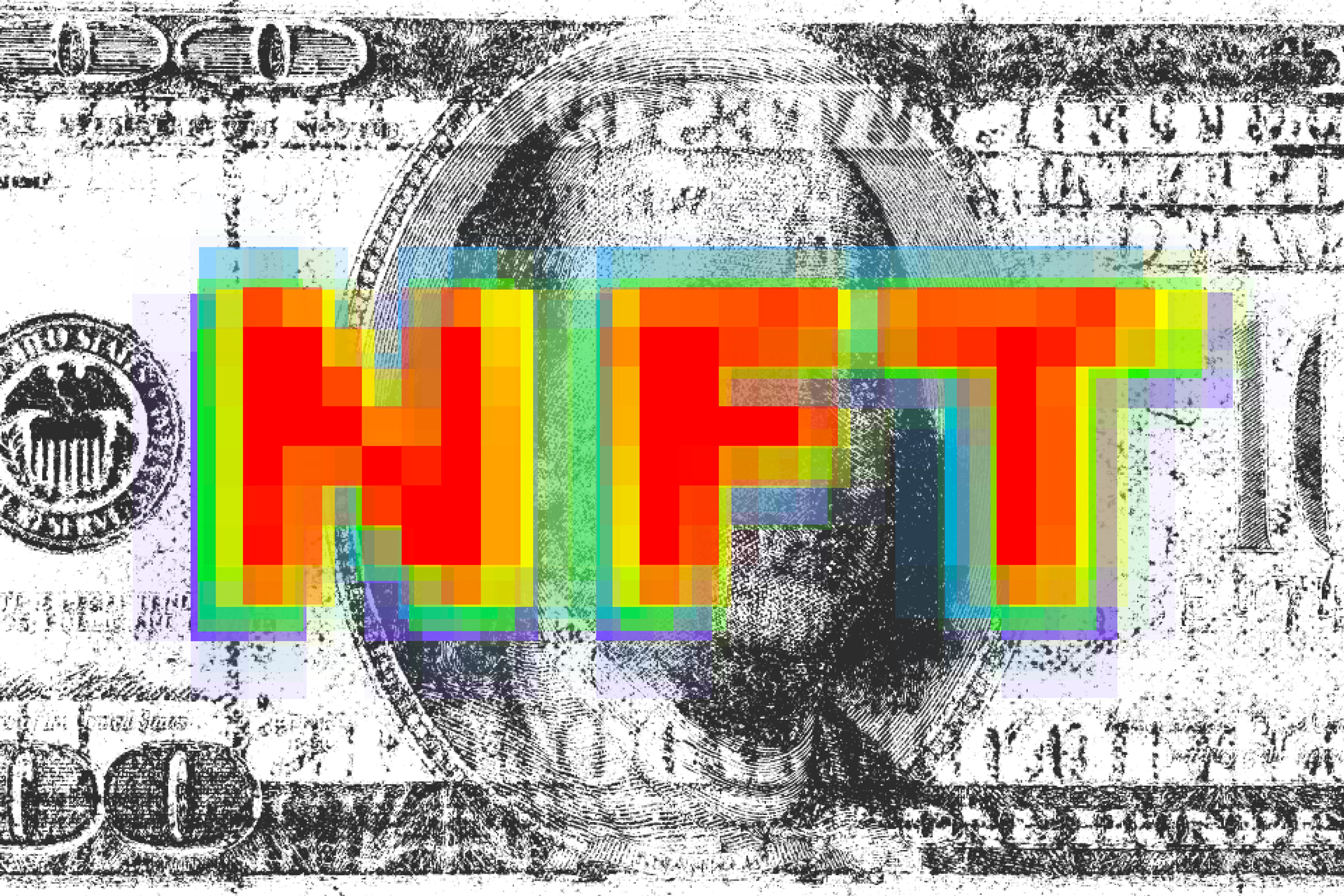How to Get a Personal Loan

Everyone runs into unexpected financial woes now and then, from your car breaking down mid-commute to falling behind on credit card payments. That’s why, ideally, you’re supposed to have an emergency fund to take care of any unforeseen expenses. But 47% of Americans have said that in order to cover even a $400 emergency, they would have to either borrow money or sell something.
There are plenty of ways to “borrow” money: you can ask for help from a friend or family member, borrow against your home if you have enough equity using a HELOC, or even charge the expense to a credit card. But one option that’s typically safer than a credit card, more broadly available than a HELOC, and avoids mixing love and money is a personal loan.
What Is a Personal Loan?
Not to be confused with payday loans — a predatory form of lending that provides short-term small loans with high interest rates, personal loans are short and medium-term and paid back in fixed monthly installments with low interest rates and borrowed by FDIC-insured lenders like credit unions and banks. They are usually paid off over the course of one to seven years (depending on the amount).
“A personal loan is a fixed rate, fixed term, and fixed payment loan,” says Gary Guthridge, Assistant Vice President of Consumer Portfolio & Loan Protection Products at Navy Federal Credit Union.
Personal loans are usually unsecured, meaning you don’t have to provide your lender with collateral in exchange for the money, and loan amounts can range from a $250 personal expense loan to $100,000 reserved for trustworthy borrowers looking to pay for big expenditures like home improvement projects.
Some lenders also charge an origination fee (sometimes also known as a processing fee) for personal loans, which range anywhere from 1% to 10% of the loan amount, depending on factors that include your credit history, repayment schedule, and income. The origination fee is factored into the annual percentage rate (or APR) in order to reflect the true cost of the loan and is usually deducted from the loan when it is deposited into your account.
When Should You Get a Personal Loan?
According to the Federal Reserve, the current average personal loan interest rate is 9.34%, which is much lower than the average credit card APR of 16.43%. Because of the low interest, rolling outstanding high-interest credit card debt together into one unsecured personal loan is a popular option for people facing credit card debt.
Although consolidating or refinancing debt are the most common uses of personal loans, there are plenty of different reasons a person might take one out. The term ‘Wedding Loan’ for example, has been coined for personal loans that are taken out by couples who need to cover the often exorbitant costs of a wedding ceremony but don’t have the money on-hand. Homeowners will oftentimes take out a personal loan to cover the expense of a home improvement project that will add value to their house when they sell it later.
Under less joyful circumstances, a person may take out a personal loan to cover the cost of unexpected medical expenses should they end up in the emergency room with a high-deductible plan (or no health insurance at all) or cover the cost of a funeral if their loved one has passed away without having had life insurance or a significant enough estate to foot the bill.
Essentially, personal loans can be used for anything — but that doesn’t mean they should be.
Let’s say you make the median American income, taking home $2,850 each month. After making all of your monthly payments (mortgage, electricity, groceries, transportation, etc.), you have about $500 left over. Then one day you get home from work and a pipe bursts in your home — and it’s going to cost upwards of $1,500 to fix the damage. While you could technically save the money needed if you’re extra frugal for the next few months, you can’t exactly live comfortably in a home with a burst pipe. Is a personal loan the right choice in this instance?
When deciding whether or not to apply, you’ll want to make a full assessment of your financial situation and the reason you’re considering taking out a loan. After all, any time you make the decision to go into debt there are risks involved. While lenders will usually make a risk assessment of their own when you apply, they can’t see everything the way you can.
Questions to Ask Yourself Before Shopping Around for a Personal Loan
How secure is my monthly income?
It’s impossible to predict the future, but if you’re going to take out a personal loan of any amount, it’s important to be sure that your income will most likely not take any significant hits throughout the course of a debt repayment plan. With a smaller personal loan like the one necessary for the damaged pipe repairs, you can expect to be paying back the loan over the course of a year or so.
It's important to also remember that you can't quickly pay your way out of personal loan debt either. Most lenders charge borrowers with a prepayment penalty if they finish paying off the loan early because they want to be able to charge as much interest as possible, so you need to be sure you can pay back the loan over the full course of the repayment period.
How long would it take for me to save up for the cost without taking out a loan? Will I be able to go without the item/repair/event until the money is saved?
If you have $500 on-hand after your monthly bills have been paid, you’ll probably still run into some unforeseen expenses. So say you can reasonably save $300 each month, it’ll take around 5 months of saving with no other emergencies to pay for the repairs. In the case of the burst pipe, you might be able to stay at a relative’s home for a few weeks, but waiting 5 months to repair water damage can cause further problems like mold, and you’ll likely overstay your welcome at even the most hospitable home.
Some situations are less urgent. If you and your partner want to host a wedding that will cost over $30,000 — the average price tag for getting married in the U.S. — but only have $7,000 saved, it will take quite a while to reach the total cost of your dream wedding. If you can’t let go of any big-ticket must-haves like a live band or luxury catering, then at the very least delaying the date of your nuptials can help you save some more money and lower the amount of a loan.
Can I borrow the money from friends or family and pay them back over time?
It’s not easy to ask for financial assistance from your loved ones, but if you have anyone in your life willing to personally cover the cost of repairs, it may be a safer bet to turn to them before seeking out a loan from a financial institution. Even if you can’t get all of the money needed from family and friends, if anyone is able to offer at least partial assistance, you can avoid taking out a higher loan.
Will the burden of debt be worth the final results?
It’s the age-old question that you always need to ask yourself of financial choices: what will be the return on investment?
In some cases the answer has a real monetary value attached. Making minor updates to a bathroom like retiling, replacing the vanity and tub, and updating fixtures has an average return just over 70%, which makes it a smart investment in the long run even if it means taking on a temporary debt. In other instances, the returns are your personal preferences and satisfaction. A big wedding isn’t for everyone, but the value of being surrounded by all of your friends and family on your special day could outweigh the price of going into debt.
Fixing a burst pipe won’t add any new value to your home, but the burden of waiting for months on end, potentially having to pay for lodging on top of mortgage payments or additional problems that arise from the damage can be more costly than the loan itself.
Have I exhausted all of my other options?
When all is said and done, if you’re out of alternatives, you’re out of alternatives. If you can reasonably make monthly payments on a loan for the foreseeable future and it’s something that must be done, then a personal loan is likely your best option.
Where to Get a Personal Loan
So you’ve officially decided to take out a personal loan. Now what? The first and most important step is to shop around.
As previously mentioned, personal loans are distributed by online lenders, banks and credit unions, each with their own sets of pros and cons. It’s important to look through each available option thoroughly to check for hidden fees or penalties, the expected payments and interest rate, and read any fine print.
“I suggest customers go to trusted financial institutions. That way you know everything up front and you know what you’re getting into before you even start the loan,” says Guthridge.
Online Lenders
With an online lender like Rocket Loans or SoFi, you’ll usually be approved for and receive a personal loan in as little as one business day after applying. It’s also common to be pre-approved for loans from online lenders, meaning you can get instant rate quotes and see approximately what your rate and loan term would be. A huge plus of getting pre-approved is that lenders will only do a soft credit check during this period, so it won’t hurt your credit score to shop around at this stage. You can figure out what the best option for your financial situation is and fill out a full application from there.
On the negative side, while online lenders tend to offer some of the lowest interest rates, those rates are usually reserved for people with near-if-not perfect credit scores and repayment history. Plus, while online lenders do offer loans to people with lower credit scores at higher interest rates, you may get in over your head without anyone to guide you through the process if you have a bad credit score and a less-than-perfect repayment history.
Traditional Banks
Right out the gate there are caveats for borrowers if you go the route of a traditional big bank. First off, not all big banks offer personal loans, so just because your credit card and mortgage is with Chase, don’t expect to receive a personal loan from them. Most traditional banks also primarily focus on certain types of loans, like Discover or Wells Fargo, which primarily offer debt consolidation loans. Big banks also tend to have higher credit score requirements; for example, TD Bank and HSBC both have a minimum score requirement of 700.
If you do happen to be a loyal member of a bank that offers the personal loan type you need — including local brick and mortar banks, there are benefits available that other lenders can’t offer. Banks will usually hold their best deals for loyal customers, offering lower interest rates and discounts.
Credit Unions
Securing a personal loan through your credit union is likely going to provide you with the best protections, rates, flexible terms and customer service. Credit unions also have the ability to offer smaller loans than online lenders and big banks would consider, with Guthridge noting that Navy Federal offers personal expense loans starting at just $250.
The reason credit unions can offer members such robust provisions is because they’re not-for-profit, meaning unlike banks which are beholden to wealthy shareholders, every member of a credit union is a shareholder with equal benefits.
The downside to borrowing through a credit union is that they don’t typically have the same high-tech options as big lenders, and thus it might take a few more days to be approved and receive the loan. You also have to be a member (meaning you have a checking or savings account with the organization) to qualify.
Can You Get a Personal Loan With a Bad Credit Score?
If you're in the process of rehabilitating your credit score, it can be frustrating to see that many big lenders have minimum credit score requirements. But having a less-than-good credit score doesn't automatically count you out. Here are your three main options if your credit score is under 600, depending on the circumstances.
1. Accept a higher APR
Once you are pre-approved for loans from big online lenders, you can see what annual percentage rates you qualify for. Reputable lenders usually don't offer personal loans at an APR higher than 36%. If paying that high of an interest rate is still reasonable for you, then this is one possibility.
2. Have a co-signer
Applying for a loan with a co-signer is low risk for the borrower, but high risk for the person co-signing. While the borrower is still the primary person tasked with paying off the loan, if they fall short or stop making payments, it becomes the co-signer's responsibility to complete the terms of the loan. This is a good option for you if there is someone in your life with whom you have an honest and trusting relationship with, i.e. a spouse or parent, who is willing to help.
3. Contact your community bank or credit union
There are a lot of perks when you're a loyal member or customer of a credit union or local bank — including better options for bad credit borrowers. Smaller, more personal institutions that you have a history with may be more willing to hear you out and come to an agreement on the terms of a loan in situations where big banks and online lenders wouldn't.
How to Apply for a Personal Loan
After doing your research and figuring out as best you can what your interest rate and repayment plan will look like, the next step is to actually fill out the application.
Whether you go into a bank or credit union or fill out an application online, the process is very similar to applying for a credit card. You’ll need to have proof of identity such as a driver’s license or passport, a copy of your lease agreement or a utility bill to provide proof of address and verification of income like a copy of your pay stub or income tax returns.
The lender will then comb through your information and look for any red flags. They will also run a hard credit check on you, which is why you should take the time to get a free credit report beforehand to ensure that you qualify for the loan.
“We usually look at credit scores, a person’s debt-to-income ratio, and all of their other debts including credit cards or auto loans,” says Guthridge.
How a Personal Loan Pays Out
Once the application has been accepted and the terms of your loan are confirmed, the first thing you should absolutely do is automate your payments.
“It’s highly recommended that the payments come directly out of a person’s checking account,” says Guthridge. That way you never have to worry about accidentally missing a payment and can instantly factor the deposit into your budget.
The money you’ve applied for will then be deposited into the account of your choosing. In the case of debt consolidation, lenders will sometimes give the money directly to the credit card companies and collectors, but most of the time the money will first be in your hand. It is then your responsibility to put the money towards the reason you initially sought out the loan in the first place.



